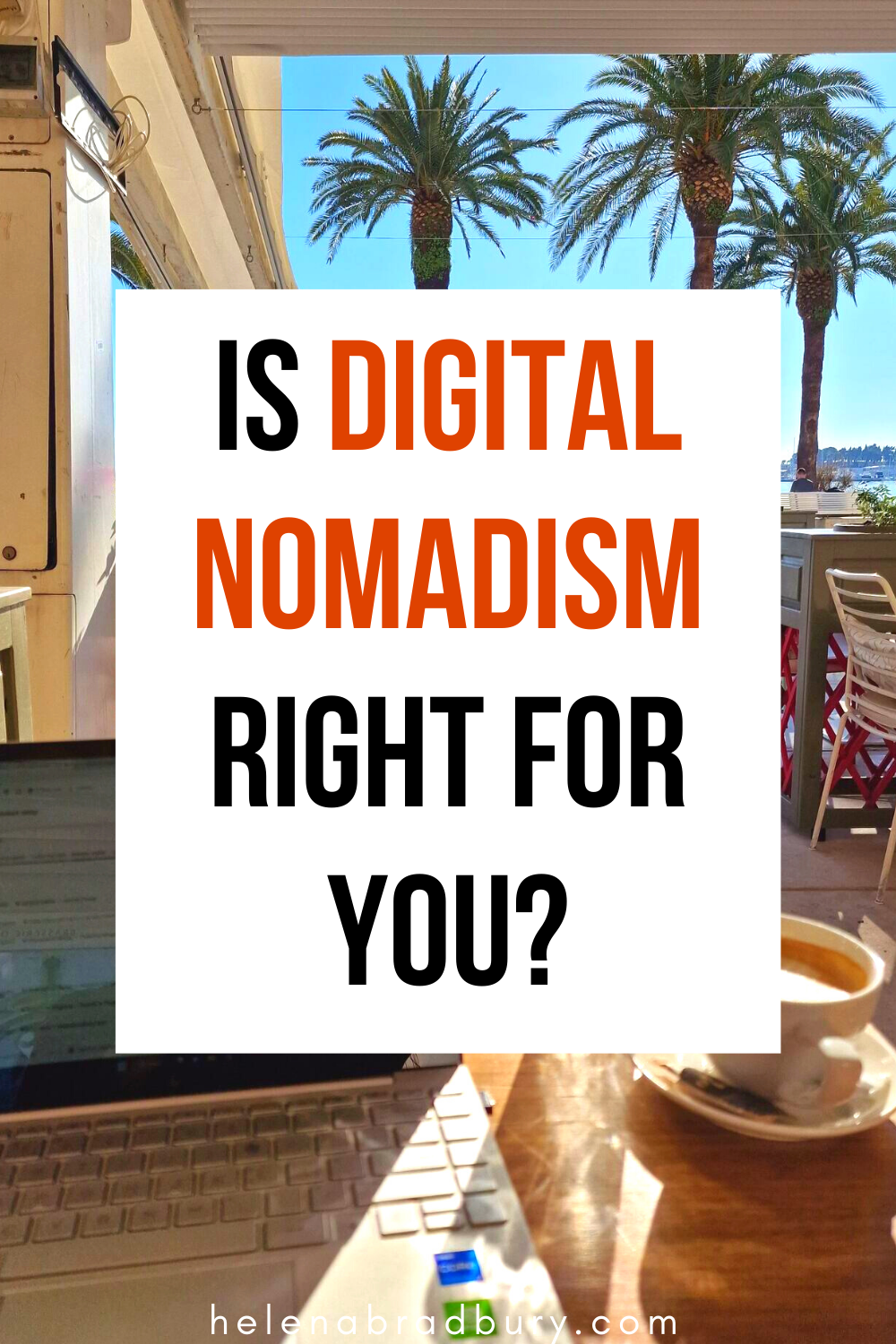Should I become a digital nomad?
How to become a digital nomad?
Is the digital nomad lifestyle right for me?
If these are questions you’ve been toying with for a while, you might be wondering whether living as a digital nomad is worth it, would you enjoy living and working as a digital nomad?
Or is it something that sounds more fun than it actually is?
I think these questions all come down to what you want from the digital nomad lifestyle.
Is it the freedom? Not being answerable to an employer? Getting rid of your belongings and living minimally? Being able to travel more? Living more spontaneously?
If you didn’t answer yes to all of those, then maybe full-blown digital nomadism isn’t right for you - but I’ve got a few suggestions and recommendations to find out if it is right for you.
Disclosure: This post may contain affiliate links, which means I may receive a commission if you click a link and purchase something. While clicking these links won't cost you anything, they will help me to keep this site up and running! Check out the full disclosure policy for more details. Thank you so much!
How to know if you should become a digital nomad?
Here are 5 things to try if you’re wondering whether being a digital nomad is right for you.
1. Go location independent as a remote worker rather than full time Digital Nomad
There’s a difference between being a digital nomad and being a remote worker. Generally, a digital nomad is self-employed, an entrepreneur or small business owner.
Whereas a remote worker is usually an employee, employed by a company who allows remote working.
If you already work for a company, it could be worth asking them if they have any programs or schemes for remote working, so you can experience the location independent lifestyle of a digital nomad, without the initial stress of trying to find work as a freelancer or starting your own business.
More companies than ever are open to the concept of remote working or increased flexibility for their employees so it’s worth finding out if your company is one of them.
Just bear in mind that there are often tax implications if you work outside the country where your company is based for more than 3 months, so this may mean that you can only work remotely abroad for up to 3 months.
However it doesn’t mean you can’t work and travel around your own country!
2. Try backpacking
Consider whether it might be long term, immersive travel or slow travel that you crave, not necessarily the remote work lifestyle.
The honest truth is that not everyone can be a digital nomad, some will struggle without the discipline or routine of an office or traditional work environment.
Some might find the uncertainty of freelancing and not knowing where your next paycheck is coming from, very stressful.
If you have the option, try travelling for a longer period, after studies or between jobs or if you live in a country with good paid leave, take 3-4 weeks to backpack.
Living a nomadic lifestyle is incredible but can be exhausting and being so far from home for long periods can be tough. So it’s good to see if this is something you would want to try on a more indefinite basis.
3. Try a short stint working abroad of around 3 months
Before you pack up your life and sell all your worldly possessions, it’s worth trying a short stint living in another country.
How quickly and easily do you build a new routine?
How easy is it to adjust to the culture, language barrier, infrastructure?
Do you feel homesick or do you embrace the new lifestyle easily?
Do you find it easy to discipline yourself to work when there are lots of new things to see and do?
Do you feel safe and comfortable to live this lifestyle long term? Especially if you’re doing it alone.
Try living in a digital nomad hotspot for 3 months. This could be Mexico, Bali, Thailand, Portugal, Vietnam or somewhere in Central or South America.
This way, you’ll have a like minded community around and the ability to have new experiences, relationships and adventures, but it’s an easier adjustment if you’re worried about feeling lonely or homesick.
4. Check options with your current employer
If you’re able to, it’s worth enquiring with your current company about whether they offer remote work programs, sabbaticals, or relocation packages to other offices they have in other locations.
This is a great compromise as it means you keep your job security and financial security as well as other benefits like insurance, pension contributions and career progression.
This is easiest if you have an office job with a mid- to large-company or multinational company. Many of the biggest companies would be more likely to offer benefits like flexible or remote working, especially as the world turns to more remote and digital working solutions.
5. Maintain a side hustle for over 6 months
If you’re ready to leave your 9-to-5 and pursue digital nomadism full time, it’s worth making sure that you can actually maintain a freelance or remote work job.
Many digital nomads became digital nomads because they started a side hustle or business that then grew and allowed them to work and travel.
The reality is that it can be challenging for some people to find the self-discipline or structure to maintain their own motivation to work, especially without the traditional structures of a job or office environment.
So a good test is to commit to a side hustle for 6 months, alongside your current job. If you’re able to work independently with that amount of self-discipline over a 6 month period, chances are you can do the same once you’re location independent.
Summary: Is being a digital nomad right for me?
Hopefully this has given you some ideas and food-for-thought about whether becoming a digital nomad is right for you and if not, what other alternatives might be.
For some people, it’s the allure of travel. For others it’s escaping the rat race and being your own boss.
What’s important is understanding what attracts you to the digital nomad lifestyle and prioritising that, whilst also understanding or minimising the uncertainties that the lifestyle can bring too. This is especially important if you’re considering living as a digital nomad alone, or if you have a family and you’re considering transitioning into family digital nomad life!

